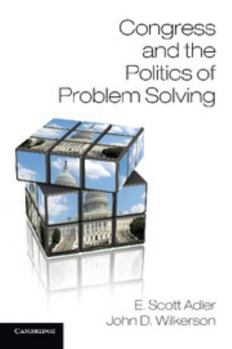Congress and the Politics of Problem Solving
Select Format
Select Condition 
Book Overview
Congress and the Politics of Problem Solving shows how a simple premise - voters are willing to hold lawmakers accountable for their collective problem-solving abilities - can produce novel insights into legislative organization, behavior, and output. How do issues end up on the agenda? Why do lawmakers routinely invest in program oversight and broad policy development? What considerations drive legislative policy change? Knowing that their prospects for reelection are partly dependent on their collective problem-solving abilities, lawmakers support structures that enhance the legislature's capacity to address problems in society and encourage members to contribute to nonparticularistic policy-making activities. The resulting insights are novel and substantial: Congress' collective performance affects the reelection prospects of incumbents of both parties; the legislative issue agenda can often be predicted years in advance; nearly all important successful legislation originates in committee; most laws pass with bipartisan support; and electorally induced shifts in preferences or partisan control are not robust predictors of policy change. The electoral imperative to address problems in society provides a compelling explanation for these important and provocative findings.
Format:Paperback
Language:English
ISBN:1107670314
ISBN13:9781107670310
Release Date:January 2013
Publisher:Cambridge University Press
Length:262 Pages
Weight:0.84 lbs.
Dimensions:0.9" x 6.0" x 8.9"
Customer Reviews
0 rating





